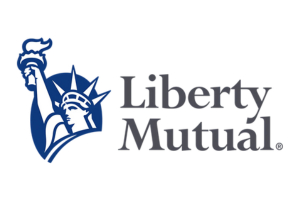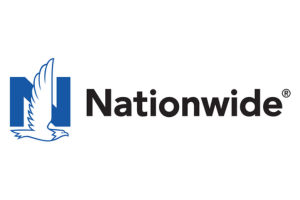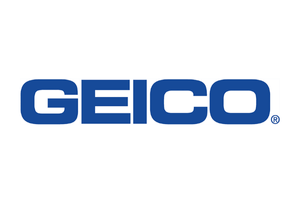Coercion: Insurance Terms Explained (2026)
Unraveling the mysteries of insurance coercion: an in-depth exploration of complex insurance terms and practices to empower consumers. Navigate the fine print with confidence and protect your rights. Discover the truth behind insurance industry jargon and gain valuable insights. Take control of your insurance journey today by entering your ZIP code and accessing a wealth of resources.
Read more Secured with SHA-256 Encryption





Find the Lowest Car Insurance Rates Today
Quote’s drivers have found rates as low as $42/month in the last few days!




Table of Contents
Table of Contents


Insurance Content Team Lead
Laura Kuhl holds a Master’s Degree in Professional Writing from the University of North Carolina at Wilmington. Her career began in healthcare and wellness, creating lifestyle content for doctors, dentists, and other healthcare and holistic professionals. In 2018, she started writing for the cannabis industry. She curated news articles and insider interviews with investors and small business ow...
Laura Kuhl


Licensed Agent & Financial Advisor
Schimri Yoyo is a financial advisor with active life and health insurance licenses in seven states and over 20 years of experience. During his career, he has held roles at Foresters Financial, Strayer University, Minnesota Life, Securian Financial Services, Delaware Valley Advisors, Bridgemark Wealth Management, and Fidelity. Schimri is an educator eager to assist individuals and families in ...
Schimri Yoyo
Updated October 2024
Welcome to our comprehensive guide on “Coercion: Insurance Terms Explained” and other related topics. In this article, we delve into the complex world of insurance, unraveling the mysteries behind common terms and practices that insurers may not readily disclose.
We aim to empower consumers like you with the knowledge needed to navigate the fine print, protect your rights, and make informed decisions about your insurance coverage. From understanding policy clauses to recognizing red flags of coercion, we cover a range of essential topics to help you become a savvy insurance consumer.
We’re committed to providing expert guidance and support. Enter your ZIP code now to compare rates from the best insurance providers, ensuring you find the coverage that meets your needs while staying informed about potential pitfalls and coercion tactics.
What is coercion in relation to insurance?
You might be aware that coercion can happen in the workplace or in other aspects of your life, but it can also occur in the realm of insurance. In regard to insurance, coercion transpires when someone in the insurance business applies either physical or mental force — or the threat of force — to persuade an individual to purchase insurance coverage. Any action that the agent inflicts through coercion is considered illegal.
Types of Coercion
Coercion occurs in many ways. These are the most common ways that coercion happens in insurance.
Psychological coercion
The first way that an insurance agent can use coercion to convince an individual to transact insurance is through psychological pressure. And this would directly affect the mental and emotional state of the person due to the duress. It is easier to persuade a person to unwillingly purchase insurance if their mental state is compromised.
Blackmail
Another way to coerce a person into buying insurance is through blackmail. Blackmail is demanding something from another individual in return for not revealing embarrassing or compromising information about them. An insurance agent could possibly use the information they learn about a potential customer to “convince” them to buy a policy or to spend more money than they intend to expend.
Unknowingly upgrade
Instead of blackmail, an insurance broker could include upgrades and more expensive benefits without the new policyholder’s knowledge. Then, once the policyholder finds out, they may be too intimidated to say anything about it.
Threats
Some insurance agents may use threats and force to make a person take out an insurance policy. This usually happens after they attempt a normal sale of the policy and the agent resorts to using power to get them to agree to go through with it.
Free Auto Insurance Comparison
Compare Quotes From Top Companies and Save
Secured with SHA-256 Encryption
What are some examples of insurance coercion?
In order to really know what insurance coercion is, let’s consider some coercion scenarios:
- Blackmail. An insurance agent is selling company insurance packages for its employees. The CEO doesn’t want to comply with it, but the agent reveals that they have pictures of him with a woman who isn’t his wife. If the CEO buys the insurance, the agents won’t release the photos. This is an example of coercion through blackmail.
- Psychological coercion. Someone with little to no knowledge of insurance is trying to purchase a policy. If an insurance agent takes advantage of that unenlightenment to manipulate them into purchasing a plan that the person doesn’t need, that’s psychological coercion. The agent might even attempt to gaslight them into thinking that it’s the best option for them.
- Threatening behavior. Maybe a policyholder wants to cancel their policy and get insurance elsewhere. If the insurance company or agent says that there will be consequences — aside from a cancellation fee — this is coercion through threatening behavior.
- Unintentional upgrade. Let’s say that an older couple wants a life insurance policy. They are slightly confused about the process, and the agent intetionally adds more expensive benefits that the couple isn’t aware of. Then, they find out after the first payment and don’t know what to do, so they don’t do anything at all and continue paying the higher premium.
Unveiling Insurance Coercion
Is coercion illegal in the insurance business?
Coercion can be a misdemeanor or a criminal offense depending on the situation. If someone uses coercion to get another person to commit a felony, then that is a serious criminal offense and can result in jail time. In the insurance business, it is considered an illegal trade act practice.
Free Auto Insurance Comparison
Compare Quotes From Top Companies and Save
Secured with SHA-256 Encryption
What is rebating in insurance?
In the insurance industry, coercion isn’t the only unethical or illegal practice that can occur. Another deceptive practice that companies and agents use to convince people to buy insurance is called rebating. Rebating is the act of offering something of value to the prospective insurance buyer that isn’t included in the policy. In every state except Florida and California, which have strict guidelines, rebating in insurance is illegal and prohibited.
The following is a list of rebating scenarios:
- A prospective insurance buyer receives a refund of some or all of the commission for the insurance sale
- An insurance broker offers a cash gift
- Offering Gifts
- Providing services
- Payment of premiums
- Employment offers
- Any other item of value
The National Association of Insurance Commissioners (NAIC) promoted the Model Act. Under the Model Act, the rebating action of dividing commission and giving money to the consumer to purchase insurance is considered a deceptive practice and an unfair method of competition.
What’s the difference between twisting and churning in insurance?
If you’ve been researching illegal insurance practices, you may have come across the terms twisting and churning. Although they are both somewhat similar activities, they occur under different circumstances and for different reasons.
Twisting
Are you wondering what is twisting in insurance? Twisting is the act of persuading a policyholder to replace their policy for a similar one, often with misleading information. Typically, it’s not in the customer’s best interest to switch policies, but they are convinced through deception. Twisting is beneficial for the insurance agent but can be harmful to the policyholder, who can lose time and money.
Churning
Churning in insurance occurs when an insurance broker purposefully replaces a policyholder’s insurance policy for another policy with another insurer. Usually, this is done without the knowledge of the policyholder and doesn’t actually change any of the coverage. It merely provides the agent another commission for the policy that they swap, which is totally illegal.
Can there be defamation in insurance?
In short, yes, defamation can occur in insurance. But what is defamation in insurance? Defamation is a false statement about someone that harms their reputation. There are two types of defamation, including slander (oral statements) and libel (written statements). Insurance can cover you from defamation. It usually falls under liability or personal injury coverage and can protect against damages caused by defamation.
Free Auto Insurance Comparison
Compare Quotes From Top Companies and Save
Secured with SHA-256 Encryption
How to report illegal insurance activity
If you or someone you know is a victim of illegal insurance activity, various organizations can assist you. Many states have fraud and abuse helplines that you can easily find through a simple Google search. For example, Pennsylvania has a web page on its Department of Human Services site with a tipline to report provider or recipient fraud. You can also report illegal insurance acts to the FBI or to the National Association of Insurance Commissioners (NAIC).

Frequently Asked Questions
Is coercion legal in insurance?
No, coercion is not legal in insurance. Insurance companies are required to provide customers with full and accurate information about their policies and coverage options, and to allow customers to make their own decisions without coercion.
What should I do if I believe I have been coerced into buying an insurance policy?
If you believe you have been coerced into buying an insurance policy, you should contact your state insurance department or regulatory agency to file a complaint. You may also want to consider contacting a lawyer who specializes in insurance law for further guidance.
Can an insurance agent be held liable for coercion?
Yes, an insurance agent can be held liable for coercion if they engage in coercive behavior when selling insurance policies. In some cases, insurance companies may also be held liable for the actions of their agents.
What does coercion mean in insurance?
Coercion in insurance refers to the practice of forcing or intimidating someone into making a decision about their insurance policy that they would not have made voluntarily.
Is coercion of debtors an unfair trade practice?
Yes, coercion of debtors is considered an unfair trade practice as it involves unethical pressure to force someone to fulfill debt obligations.
Can I sue my insurance company for emotional distress?
Yes, you can sue your insurance company for emotional distress if their actions, such as bad faith practices or unfair treatment, have caused you significant emotional harm.
Can I sue my insurance company for dropping me?
Yes, you can sue your insurance company for dropping you if it was done without a valid reason or in violation of your policy terms and applicable laws.
What is an example of coercion?
An example of coercion is a lender threatening a borrower with legal action to force them to take an insurance policy from a specific provider.
What is coercion in life insurance?
Coercion in life insurance involves pressuring an individual to purchase or modify a life insurance policy against their will.
What can coercion include?
Coercion can include threats, intimidation, physical force, or psychological pressure to compel someone to act in a certain way.
What is the principle of coercion?
What is the most common form of coercion?
What is an alternative for coercion?
Who is at risk of coercion?
Who uses coercion?
What is considered an act of coercion?
Which situation is an example of coercion?
Is coercion a threat?
What can be considered coercion?
Is coercion a form of harassment?
What is an example of coercion in business?
What is an example of coercion in business?
What is an example of coercion and threats?
What is an example of coercion in society?
What is a coercion example in contract?
What is the law of coercion?
What are the consequences of coercion?
What is coercion in human behavior?
What are grounds of coercion?
Is coercion free consent?
What is the problem with coercion?
Get a FREE Quote in Minutes
Insurance rates change constantly — we help you stay ahead by making it easy to compare top options and save.







